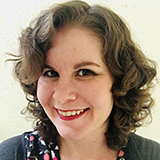Four weeks ago, a group of people across the country began the process of planning a return to their usual workplaces following the pausing of national shielding. I was one of those people.
There have been innumerable positive aspects around stepping back inside the hospital walls. It has been a delight to reconnect with colleagues, and in my case, has coincided with finally entering higher training in a specialty that I love. I have been reminded of the satisfaction I gain from seeing hospital inpatients, and from working with a large team. After months of relative isolation at home, having people to wave at in a corridor is a small joy, and being able to discuss clinical cases in real time is much easier than relying on emails.
There has also been a lot to weigh up, which at times has proven challenging; what personal protective equipment (PPE) is used, and where, whether this is a rule or a choice; how patients (and staff) move around the hospital and what the protocols are for testing in different areas; the risk inferred by different clinical activities, not all of which are intuitive, and at times, the logistics of finding a quiet corner to take a moment away from other people, after a long period with only a laptop for company. The transition from shielding—with its narrative of closed doors, hazardously ajar windows and sheer human avoidance—to suddenly speaking directly into the ears of patients whose sensory impairments are horribly exacerbated by my mask and visor, is at times a little overwhelming. Working in healthcare exposes you to a range of raw emotions centred on the circumstances of others—we feel joy when something goes well, grief when it doesn’t, and frustration when the system doesn’t work the way it should for the people in our care. I have never felt fear before, though, at work, and now all it takes is a well-timed cough, or examining someone’s oropharynx to put me on edge. My patients are many things to me—they are story-tellers, teachers, monuments of medical history, and occasionally, conundrums I struggle to solve. They have never before been a significant potential threat to my own health, and this new addition to the dynamic feels particularly difficult to navigate.
Many medical schools include a recitation of the Declaration of Geneva in their graduation ceremonies. Its first point is a dedication to the service of humanity, its second notes that patients shall be of first concern, and is only at the eleventh statement that consideration is made towards protecting one’s own health. Perhaps then, it is no surprise that the concept of donning one’s own life jacket first is alien to healthcare workers who have undergone years of training to prioritise others before themselves. This can feel counterintuitive and uncomfortable, if not a complete moral failure. These issues have been forced into the limelight as the pandemic has required NHS workers with significant vulnerabilities to covid-19 to consider and often adapt their roles, and to find some peace with their decisions among a culture where working harder and longer remains a laudable expectation.
Unexpectedly, this has opened up the conversation on multiple platforms about what it means to be a healthcare worker with health needs, sometimes referred to as a wounded healer. People have emerged from the woodwork seeking solidarity about an issue that often attracts both secrecy and stigma, and that given the diverse variables surrounding covid-19 risk, is more complex than ever. A dedicated Facebook group for shielding healthcare workers has over 600 members, with dozens of daily posts. Locally, I co-chaired a network for Deanery remote-working trainees to share resources and opportunities, and many others have found support in informal digital groups.
When I returned to work following cancer treatment, I didn’t know anyone who was simultaneously going through something similar, and as patient networks can be a challenging place to find common ground, as a clinician, at times I felt quite isolated. This time around, with shielding paused, most teams and departments will have someone like me, who is currently navigating their return to work. I have found that being able to connect with others in the same strange boat, to compare notes, discuss practical aspects, and to acknowledge the many unexpected facets of stepping back in, has been hugely helpful and often reassuring. Talking over an unexpected covid-19 curve-ball and the resultant elevated anxiety with someone who is able to say “me too”, has been validating, as has wider discussion about how it feels to balance the competing states of patient and doctor, something which I am very much still learning. Wounded healers are not unique, but they are sometimes vulnerable and in need of solidarity, when considering their own needs feels against the professional grain.
Moving forward, it is probable that many healthcare workers with vulnerability to covid-19 will face months of uncertainty and difficult decisions, as cases fluctuate and information evolves. Do we stay or do we go, and when? It has been laudable to see many hospitals issuing compassionate guidance around reintegrating and supporting returning colleagues that acknowledges both the practical and emotional challenges this group may experience. It will be interesting to see if this current trend for more open discussion and disclosure, whether covid-19 focussed or not, will continue, and if so, how we might be able to build the structures that might enable healthcare workers with these experiences, to access the ‘me too’ that is sometimes desperately needed.
 Charlotte Squires is a Specialist Registrar in Geriatric Medicine at the Borders General Hospital in Melrose, Scotland.
Charlotte Squires is a Specialist Registrar in Geriatric Medicine at the Borders General Hospital in Melrose, Scotland.
Competing interests: None declared.
